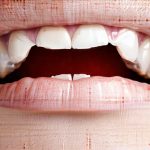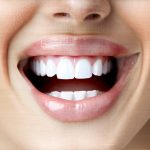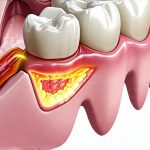That peculiar wave of nausea some experience after simply brushing their teeth is surprisingly common, yet often dismissed as an oddity. It’s not usually a sign of a serious underlying condition, but understanding why it happens can alleviate anxiety and potentially lead to strategies for minimizing the unpleasant sensation. Many people don’t realize how complex the act of brushing truly is – it involves multiple senses, reflexes, and neurological pathways that can sometimes interact in unexpected ways. What seems like a mundane hygiene routine can inadvertently trigger discomfort for a significant portion of the population.
This article will delve into the multifaceted reasons behind this phenomenon, exploring everything from sensory overload to psychological associations and even potential physiological triggers. It’s important to remember that individual experiences vary greatly, and what causes nausea in one person may not affect another. We’ll aim to provide a comprehensive overview, empowering readers to understand their own reactions and explore possible solutions if needed. The goal isn’t to diagnose or treat, but rather to illuminate this often-overlooked aspect of oral hygiene and its connection to our overall wellbeing.
Sensory Overstimulation & Gag Reflexes
The mouth is an incredibly sensitive area, densely packed with nerve endings. Brushing teeth, even gently, constitutes a significant level of stimulation for these nerves. This can be particularly true when using flavored toothpastes or vigorously scrubbing – both practices increase the intensity of sensory input. For some individuals, this intense stimulation crosses the threshold and triggers a gag reflex, which is a protective mechanism designed to prevent choking. However, in certain cases, the gag reflex can be overly sensitive, leading to feelings of nausea even without actual threat.
The link between the gag reflex and nausea isn’t always straightforward. It’s not simply about physically triggering the gag; it’s often about the anticipation of triggering it. If someone has a history of feeling nauseated while brushing, or associates the act with unpleasant sensations, their brain may begin to anticipate this response, leading to a self-fulfilling prophecy. This is where psychological factors come into play, which we’ll explore later. Moreover, certain textures and flavors – particularly minty ones – are more likely to trigger these responses in susceptible individuals.
The vagus nerve plays a critical role here. It’s a long cranial nerve that runs from the brainstem down through the neck and torso, influencing several bodily functions including digestion and heart rate. Stimulation of the mouth, like brushing teeth, can activate the vagus nerve, which can then send signals to the brain that are interpreted as nausea. This is why some people report feeling nauseous even before their toothbrush reaches the back of their mouth; the mere act of putting toothpaste in their mouth can be enough to trigger a response. Understanding the connection between repeated breath tests and nerve function may also prove helpful for some individuals.
Psychological Associations & Learned Responses
As alluded to earlier, psychological factors often play a surprisingly significant role in experiencing nausea after brushing teeth. If someone had a negative experience – perhaps choking on toothpaste as a child, or having an unpleasant dental visit – they may develop a learned association between brushing and feelings of discomfort. This can create a psychological trigger that activates the nausea response even years later. The brain essentially remembers the initial negative experience and anticipates its recurrence.
This isn’t about being “dramatic” or oversensitive; it’s a natural neurological process called classical conditioning. In simple terms, the act of brushing teeth (the neutral stimulus) becomes associated with the unpleasant sensation (the conditioned response). Over time, the mere sight or smell of toothpaste can be enough to evoke feelings of nausea, even if there’s no physical trigger. This is why strategies like mindfulness and relaxation techniques can sometimes help mitigate the issue – by consciously challenging these negative associations. If underlying digestive issues are contributing to this discomfort, exploring why some people need full GI mapping might offer insight.
Breaking this learned association isn’t always easy but it’s possible. Gradual desensitization, where you slowly reintroduce brushing in a controlled manner while practicing relaxation exercises, can be helpful. For example:
1. Start by simply touching your toothbrush to your lips for a few seconds without brushing.
2. Gradually increase the duration and area of contact.
3. Eventually, begin brushing gently for short periods.
The Role of Toothpaste Ingredients & Oral Hygiene Products
Certain ingredients commonly found in toothpaste can exacerbate nausea in susceptible individuals. Strong mint flavors, while refreshing to many, can be overwhelming for others, triggering a gag reflex or stimulating the vagus nerve excessively. Similarly, sodium lauryl sulfate (SLS), a foaming agent present in many toothpastes, has been linked to increased mouth sensitivity and irritation, potentially contributing to nausea.
Beyond toothpaste, other oral hygiene products like mouthwash can also play a role. Alcohol-based mouthwashes are known for their strong flavors and potential to irritate the mouth, further increasing the likelihood of nausea. Switching to SLS-free toothpaste or using milder flavored options (like unflavored or fruit-flavored) can sometimes make a significant difference. It’s also worth considering natural alternatives that avoid harsh chemicals altogether.
Furthermore, the texture of toothpaste itself can be problematic for some. A very thick or gritty paste might feel more difficult to manage and increase the sensation of sensory overload. Exploring different brands and formulations – including gels and foams – could help identify a product that is better tolerated. Remember, there’s no one-size-fits-all solution; finding what works best requires experimentation. Sometimes, why you may feel bloated after only a small meal can also impact oral hygiene routines due to discomfort.
Addressing Underlying Medical Conditions & Seeking Professional Advice
While nausea after brushing teeth is usually not indicative of a serious medical condition, it’s important to rule out any underlying issues, especially if the problem is severe or persistent. Certain conditions, such as gastroesophageal reflux disease (GERD) or vestibular disorders (inner ear problems affecting balance), can make individuals more susceptible to nausea and vomiting. These conditions may be exacerbated by the sensory stimulation associated with brushing teeth.
It’s also crucial to consider any medication you might be taking, as some medications can have side effects that include nausea. If you suspect a medical condition is contributing to your symptoms, it’s essential to consult with your doctor or dentist for proper evaluation and diagnosis. Do not self-diagnose or attempt to treat yourself without professional guidance. Why some people feel bloated after salads can sometimes mimic the discomfort experienced during oral hygiene routines.
Finally, if the nausea is debilitating or interferes with your ability to maintain good oral hygiene, seeking advice from a dental professional is highly recommended. They can offer personalized recommendations based on your individual circumstances and help you develop strategies for managing the discomfort. This might include suggesting different brushing techniques, recommending alternative oral hygiene products, or referring you to a specialist if necessary. Remember that consistent oral care is vital for overall health, so finding ways to address this issue is crucial. If water seems to trigger it, consider why some people experience bloating after drinking water. It’s also important to remember that why some people are sensitive to nightshades and feel gassy can impact their reaction to certain products.


















